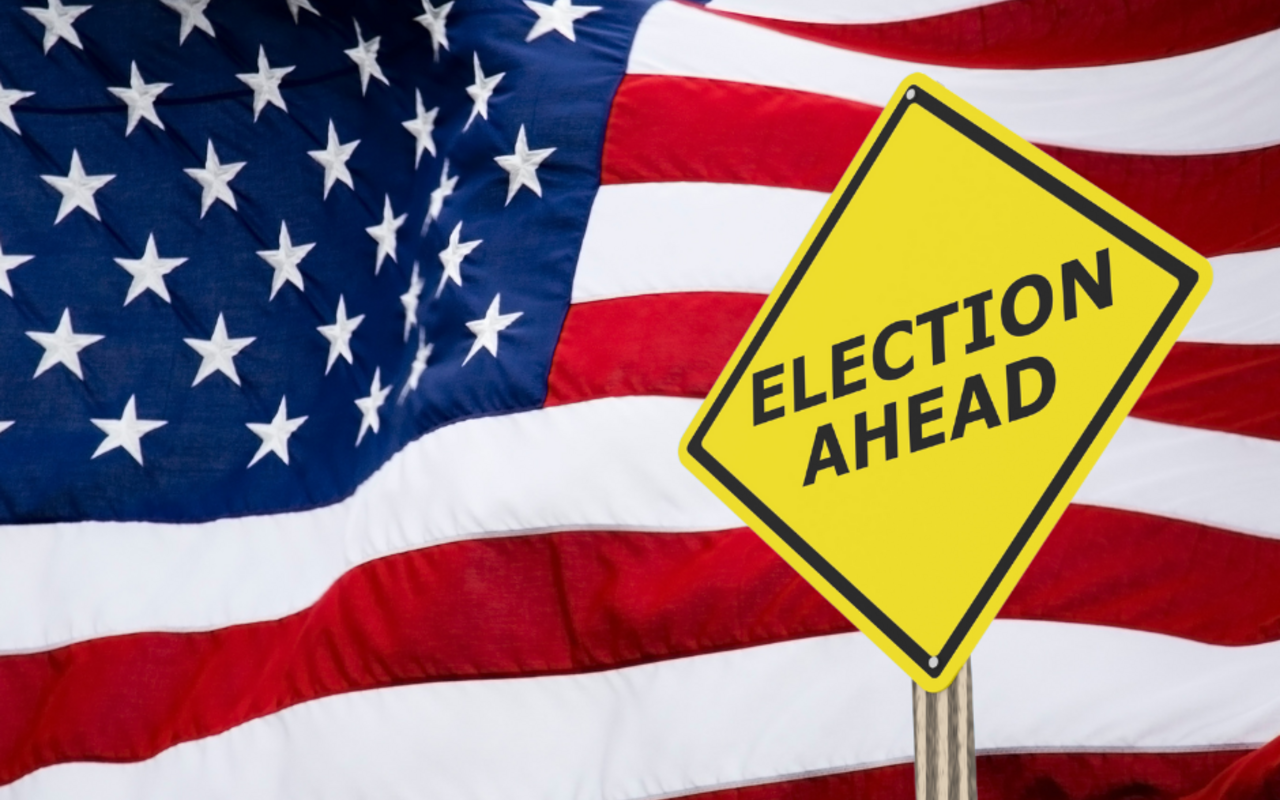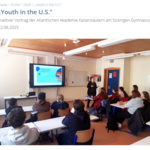Written by Christian Blaul (intern)
On September 5th, 2024, the Atlantic Academy Rhineland-Palatinate e.V. in cooperation with the Rhineland-Palatinate State Pedagogical Institute organized an online seminar for teachers titled Divided Democracy? The United States and the Presidential Elections. Sarah Wagner, from the Atlantic Academy, hosted the seminar.
The first presentation with the title Resources and Strategies for the Classroom was given by Anna Schönbach from the Rhineland-Palatinate State Pedagogical Institute, introducing several useful ideas and materials for teachers to use in the classroom according to each language level, concerning the United States (U.S.) presidential elections. These ideas included, for instance, the discussion question of how elections should ideally work and how they often actually are. Another idea was to examine the political campaigns by analysing the words that are being used and the audience that is targeted by the presidential candidates and their running mates. The presented materials included helpful book and movie recommendations as well as useful databases for research.
This was followed by Dr. Dominik Tolksdorf from the German Council on Foreign Relations who then gave a presentation on The U.S. Election System and Its Challenges. After a brief overview of the political system of the U.S., Dr. Tolksdorf talked about the electoral system, the events of 2020 and Trump’s attempts to overturn the election results, the partisan and external risks to free and fair elections in 2024, and he gave an outlook on what will matter in the next weeks regarding the 2024 election campaign. Dr. Tolksdorf provided exciting insights into the challenges and threats of the upcoming U.S. elections.
After the lunch break, Dr. Philipp Adorf from the University of Bonn gave a lecture titled The Republican Party and Democracy, talking about the driving forces behind Republican illiberalism: white anxieties among Republican voters, Republican measures to restrict voting rights, and about whether the Republican Party can transform itself into a less radicalized party once again. Using many statistics, Dr. Adorf provided interesting facts about how the Republican Party changed over the past years and how it affects the political system. Furthermore, he visualized the motives of Republican voters and their perception of political reality.
The final presentation The Vice-President (VP), by Tim Haas from the University of Jena, focussed on the position of the VP in the U.S. political system and how this position has changed over the past decades. Mr. Haas discussed the historically often questioned legitimacy of the VP, the suggested changes to the Vice Presidency, and finally, the current vice presidential candidates. Part of the presentation was a quick insight into the constitutional regulations regarding the VP as well as an interesting overview of the VP’s functions during an election campaign.
Beyond the insightful and informative presentations, all speakers took the time to answer questions and discuss their respective topics in depth. The different angles of the speakers stimulated reflection regarding the upcoming elections and the state of the democratic system of the U.S.









